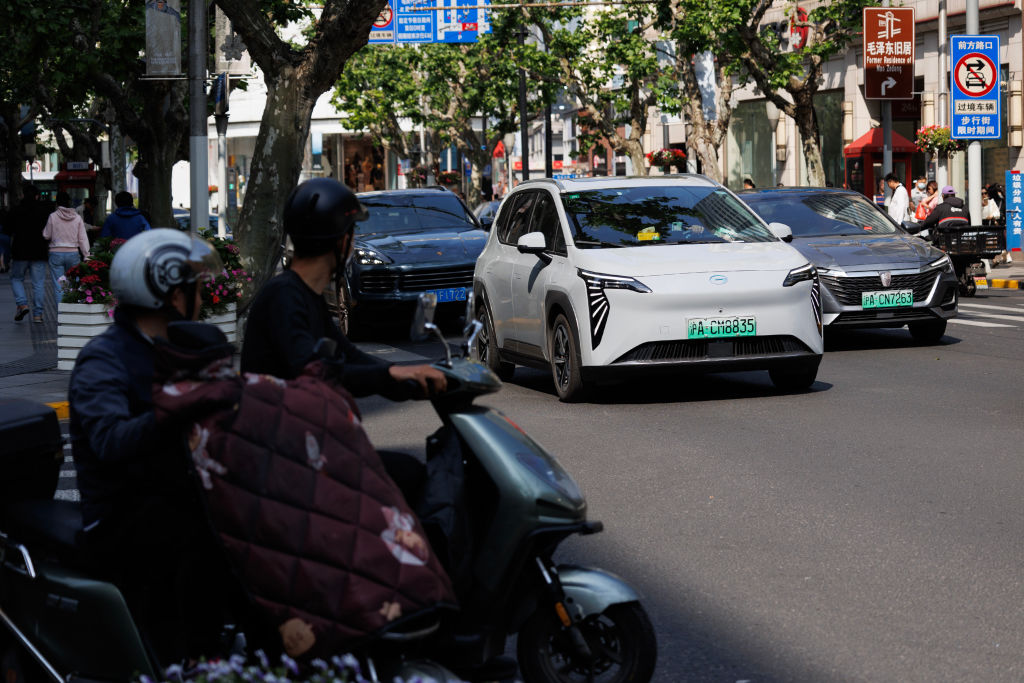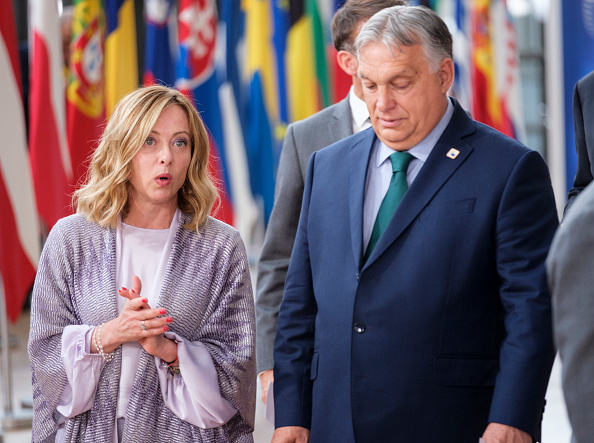The European Parliament is dropping rules on gender balance to prevent the hard-right from holding any position of power, three female MEPs have claimed.
The MEPs from the assembly’s hard-right Patriots for Europe group have been prevented from becoming committee vice-chairs by the committee majority despite being entitled to the roles, they told Brussels Signal over the past few days.
The three parliamentarians, Virginie Joron, Kinga Gál and Susanna Ceccardi, who are respectively French, Hungarian and Italian, said leaders had come up with a variety of ruses to prevent them becoming committee vice-chairs. In one case, a scheduled vote disappeared from the committee agenda; in another, an MEP was told that the appointment of a vice-chair “wasn’t strictly necessary”.
Joron, who represents France’s National Rally party and who sits on the European Parliament’s budget control committee, has been collecting evidence with a view to a possible court challenge. She said parliamentary leaders insisted on gender balance in internal emails prior to votes on committee chairs but then suddenly dropped the requirement when voting was about to take place.
“This is the budget control committee, which is supposed to oversee the spending of the entire EU,” she said. “If anything is done properly, it should be here.”
It was, she said, “outrageous” that the EP was sidelining women to keep the Patriots of Europe, the Parliament’s third-largest group, from participating in key decision-making.
The gender-balance rules are part of the complex d’Hondt system used by the Strasbourg-based assembly and other democracies around Europe to hand out power in an approximately proportional manner. While usually followed, politicians within the European Parliament majority have previously deviated from it to prevent hard-right parties from holding committee chairs.
Now EP leaders appear willing to drop gender balance in order to do so.
According to internal Parliament correspondence quoted by Joron, its leaders have given “dispensation” to several committees to ignore gender balance. The official reason for these exceptions is that it has proven “difficult” to “respect gender parity” within the committees.
Gál said she had been prevented from becoming vice-chair of the foreign affairs committee, while Ceccardi said, under the d’Hondt system, she should have been in line to become vice-chair of the committee on civil liberties, justice and home affairs.
Gál said parliamentary leaders were expected to apply the same techniques to the so-called “standing rapporteurs” who follow certain subjects throughout the course of the legislature.
The story came amid a major push within all European Union institutions to ensure greater gender balance. European Commission President Ursula von der Leyen has lobbied national governments to send more female candidates to Brussels. There are already rules stipulating the cabinets of Commissioners must have an equal number of men and women.
Javier Zarzalejos, the newly elected chair of the Parliament’s civil liberties committee, said he was not familiar with Ceccardi’s case. In a recent interview with Brussels Signal, he added that MEPs from the Patriots group should stop their “EU-bashing” and “respect the legitimacy of the Parliament” if they were looking to take more power.
Asked whether the EP was prepared to abandon gender balance, one unnamed spokesperson said: “The election of Committees’ Bureaux is laid down by the Rule 219 of EP’s Rule of Procedures, establishing that ‘the composition of the committees shall, as far as possible, reflect the composition of Parliament’.”
The spokesperson continued: “As the distribution of chairs and vice-chairs of parliamentary committees and delegations are established by a majority vote, all Members, exercising their free and independent mandate, can choose to vote in favour or against for the candidates standing for the offices.”
The d’Hondt system is not written into the EU treaties, leading to claims that it is not legally binding for the European Parliament.
The interview with Zarzalejos will be posted shortly on the Brussels Signal homepage.





